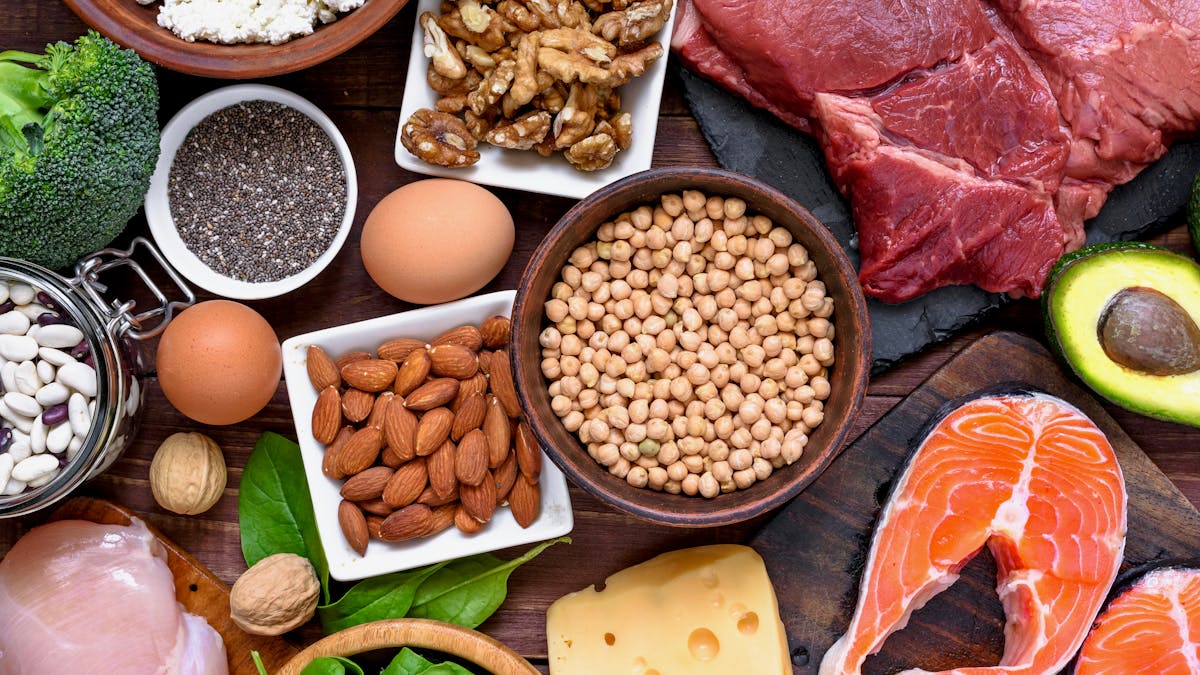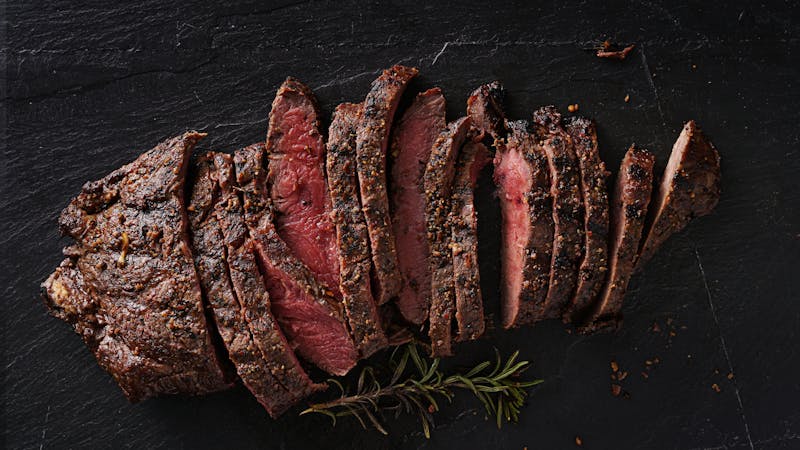Diet Doctor’s policy on eating meat
Should you eat meat? Is eating meat good or bad for your health and for the environment, and is it good or bad from an ethical perspective?These are highly controversial questions, and the answers you get will be very different depending on whom you ask.
At Diet Doctor, our purpose is empowering people everywhere to dramatically improve their health. Our main focus is on making low carb simple for people who could benefit for health reasons.
Regarding eating meat or not, we are neutral.
A low-carb diet does not have to be a high-meat diet. In fact, it’s possible to eat a vegetarian low-carb diet with zero meat. At Diet Doctor, we aim to provide amazing options, empowering people whether they choose to eat meat or not.
Beyond giving evidence-based health information, we do not believe that it’s our role to tell people how to think about meat, or what lifestyle choices they should make. These are deeply personal choices and we respect that different people will come to different conclusions.
Some people feel that eating meat is morally wrong, while others believe it is acceptable. We believe that there are relevant arguments for either position, and respect the views of different people. Again, we aim to provide great options for both groups.
Meat and health
Meat is nutritious, potentially satiating, and an excellent source of highly bioavailable protein.1 Meat-based diets, therefore, are more likely to provide essential nutrition at lower overall caloric intake.2
Despite the controversies surrounding it, there does not appear to be any significant health risks with unprocessed meat.
Learn more in our evidence-based guide to red meat
Regarding a meat-free diet
It is absolutely possible to follow a vegetarian low-carb diet. A lacto-ovo vegetarian diet or a pescatarian diet are both quite easy to make low carb.3
With knowledge and planning, the high-quality protein in meat can also be replaced by plant alternatives, should you want to.4
If you want to completely avoid animal products and eat a vegan diet, this requires special care to avoid a shortage of essential nutrients.5
It is especially challenging to combine a vegan diet with a keto low-carb diet (under 20 grams of carbs per day). However, a more moderate or liberal low-carb vegan diet, with a bit more carbs, is very possible.
We aim to help make it as simple as possible to eat a meat-free vegetarian or vegan low-carb diet.
Meat and the environment
While the burning of fossil fuels for transport or electricity is by far the largest long-term cause of climate change, the industry of raising animals for meat production at a large scale also contributes, as does all industrialized forms of agriculture.6
Some ways of raising animals will generally result in more greenhouse gases than others, and some kinds of meat generally have a larger impact than others. Learn more
Some kinds of modern animal agriculture promise to reduce or eliminate net greenhouse gas production, and may even be carbon negative.7 This “regenerative agriculture” can result in atmospheric carbon ending up in the soil, reducing carbon dioxide in the atmosphere and potentially helping protect the planet from climate change. Learn more
Unfortunately, more environmentally friendly and locally produced meat can be more expensive, and thus harder to afford for people with limited resources. For them eating less meat may be a better environmental option if it meant eating more locally produced foods.
We aim to inform and make choices as clear and simple as possible, including budget options, but respect that people have different financial situations and will therefore make different choices. Learn more
Summary
At Diet Doctor, our goal is to empower people everywhere to dramatically improve their health, by making low carb simple.
This is true whether you choose to eat meat or not – we aim to provide amazing low-carb options for you either way.
Diet Doctor’s policy on eating meat - the evidence
This guide is written by Dr. Andreas Eenfeldt, MD and was last updated on June 17, 2022. It was medically reviewed by Dr. Bret Scher, MD on May 19, 2020.
The guide contains scientific references. You can find these in the notes throughout the text, and click the links to read the peer-reviewed scientific papers. When appropriate we include a grading of the strength of the evidence, with a link to our policy on this. Our evidence-based guides are updated at least once per year to reflect and reference the latest science on the topic.
All our evidence-based health guides are written or reviewed by medical doctors who are experts on the topic. To stay unbiased we show no ads, sell no physical products, and take no money from the industry. We're fully funded by the people, via an optional membership. Most information at Diet Doctor is free forever.
Read more about our policies and work with evidence-based guides, nutritional controversies, our editorial team, and our medical review board.
Should you find any inaccuracy in this guide, please email andreas@dietdoctor.com.
Journal of Sports Science Medicine 2005: Protein – Which is best? [overview article; ungraded]
American Journal of Clinical Nutrition 2005: A high-protein diet induces sustained reductions in appetite, ad libitum caloric intake, and body weight despite compensatory changes in diurnal plasma leptin and ghrelin concentrations [randomized trial; moderate evidence]
Frontiers in Nutrition 2019: Dietary protein quantity, quality, and exercise are key to healthy living: A muscle-centric perspective across the lifespan [overview article; ungraded]
↩Although plant protein sources (nuts, seeds) also provide essential amino acids, animal proteins are considered higher quality because they provide all of the essential amino acids in the amounts your body needs with fewer associated carbs and calories.
American Journal of Clinical Nutrition 2015: Commonly consumed protein foods contribute to nutrient intake, diet quality, and nutrient adequacy [overview article; ungraded]
Journal of Cachexia, Sarcopenia and Muscle 2017: Dietary protein content for an optimal diet: a clinical view [overview article; ungraded]
Scientific Reports 2016: Essential amino acids: master regulators of nutrition and environmental footprint? [overview article, ungraded] ↩
This is based on consistent clinical experience of low-carb practitioners. [weak evidence] ↩
Medical Journal of Australia 2013: Protein and vegetarian diets [overview article; ungraded] ↩
On a vegan diet, it’s recommended to supplement vitamin B12.
Furthermore, supplementing vitamin D may be wise (unless you get a lot of sunlight).
A supplement of long-chain omega-3 fatty acids may also be good, due to inefficient or unpredictable ALA conversion, unless consuming algae (vegan source of DHA) regularly.
Journal of the International Society of Sports Nutrition 2017: Vegan diets: practical advice for athletes and exercisers [overview article; ungraded]
Nutrients: Comparison of nutritional quality of the vegan, vegetarian, semi-vegetarian, pesco-vegetarian and omnivorous diet [review article; ungraded]
American Journal of Clinical Nutrition: Health effects of vegan diets [review article; ungraded]
↩EPA.gov 2020: Sources of greenhouse gas emissions [overview article; ungraded] ↩
Journal of Soil and Water Conservation 2016 The role of ruminants in reducing agriculture’s carbon footprint in North America [observational study, weak evidence] ↩



